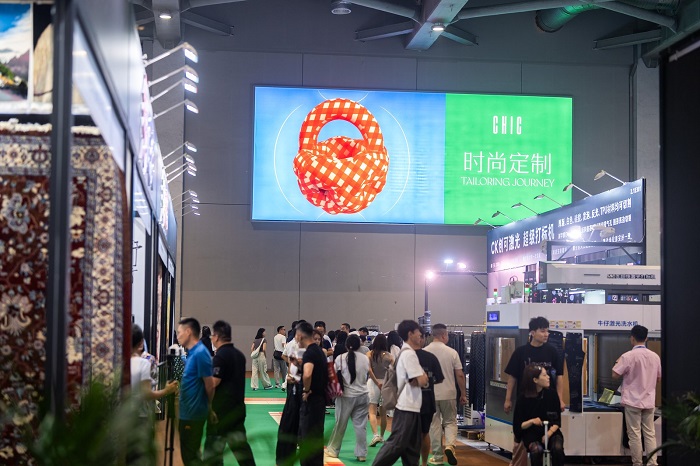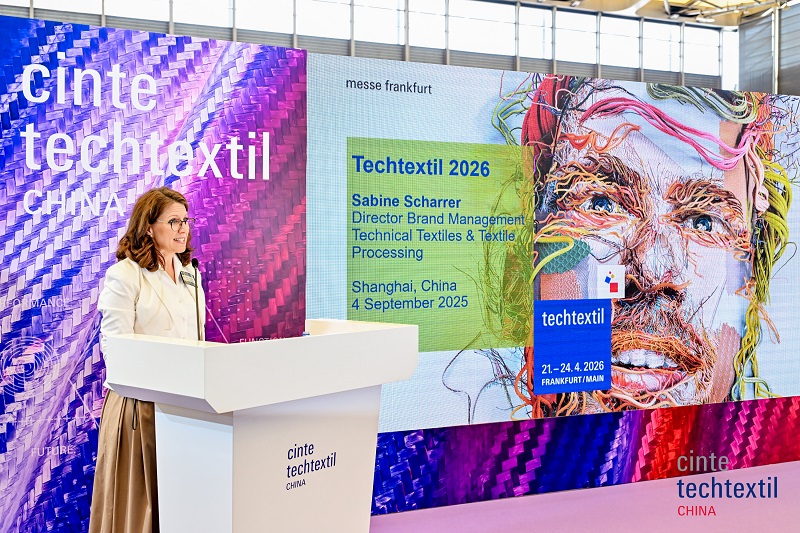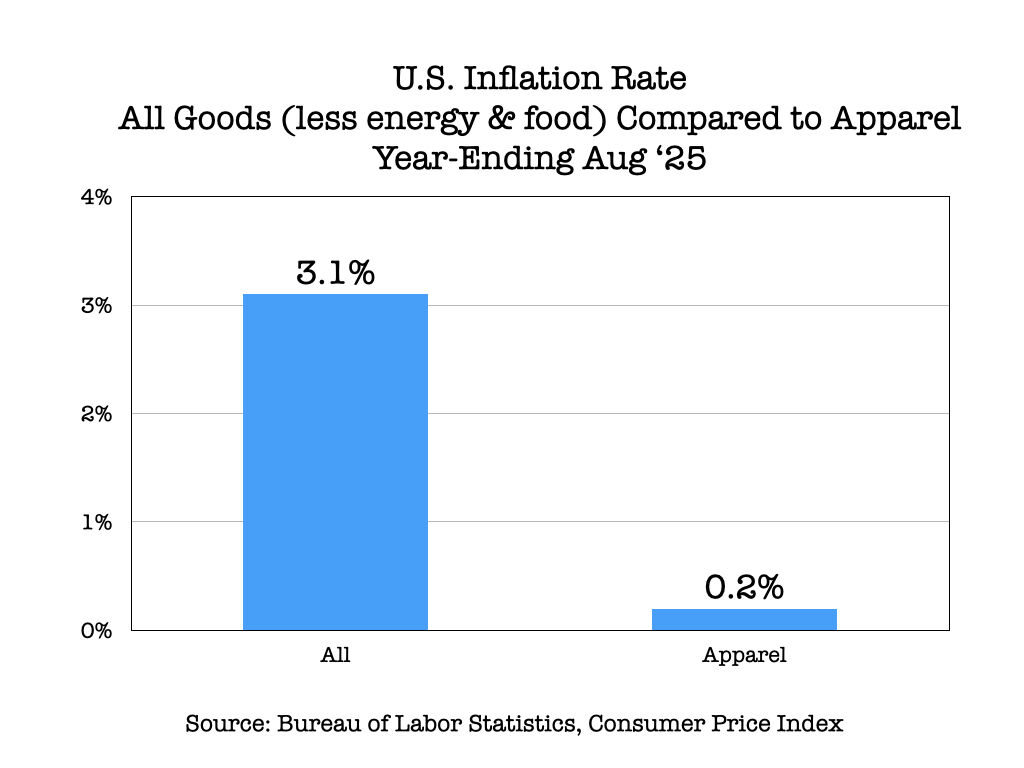FW
India’s annual retail inflation accelerated in April to 4.58 per cent.This was mainly driven by faster increases in food and fuel prices.
Core inflation, mainly reflecting firming up manufacturing prices, touched 5.9 per cent, a 44-month high.
Wholesale price inflation in April rose faster than expected, to 3.18 per cent. Annual retail food inflation, which contributes about half of the weight in the CPI index, rose 2.80 per cent in April almost at the same level of 2.81 per cent rise in the previous month.
It’s possible retail inflation could cross the five per cent mark in the next two to three months. As the economy gathers momentum, capacity utilisation could tighten further, which will boost underlying price pressures.
The biggest risk that Asia’s third-largest economy faces is rising crude oil prices, which are at their highest since November 2014 following prospects of new US sanctions on Iran.
India meets 80 per cent of its oil needs from imports. An increase in the oil price could quicken inflation by about one percentage point and reduce economic growth by 0.2 to 0.3 percentage points.
However India’s economic growth could rebound to 7.4 per cent in fiscal year 2018-19 beginning April, from an estimated 6.6 per cent in the previous fiscal year.
The International Labor Organisation (ILO) and Istanbul Apparel Exporters’ Association (IHKIB) are working together under a cooperation protocol.
The protocol would contribute to the creation of decent work for Syrians and host communities in the apparel industry as a leading industry of current and potential employment and support an enabling environment for economic growth.
The ILO office for Turkey has undertaken activities since 2015 for the Syrian refugee crisis.
The joint program by IHKIB and ILO will be implemented in provinces where Syrian refugees live in large numbers. The focus in this collaboration program will be on member companies which employ and intend to employ Syrians. The program will coordinate the operations of such companies in production, social compliance, and human resources management. It will include Turkish workers as well as Syrian guests in the sectoral labor force to further strengthen the sector.
The protocol will be valid for two years. It’s expected to set an example for subsequent schemes of cooperation.
As a most important sectoralorganisation with more than 7,000 members representing the Turkish apparel industry, IHKIB makes significant contributions to the sector and the Turkish economy.
Turkey’s apparel exports to the EU are 75 per cent of total Turkish apparel exports.
Pakistan’s progress in gaining advantage of the GSP Plus status has not been impressive.
The increase in exports to the EU during the first half of 2014 was about 12 per cent. There has not been much increase after that. In 2012-13 the growth was 12 per cent per annum. Exports during the year 2013-14 increased by 28 per cent. Exports in 2014-15 decreased by 1.3 per cent, then marginally increased by 1.1 per cent in 2015-16.
During the years 2008-17, exports to the EU increased at a rate of about seven to eight per cent a year. With the inclusion of Pakistan in the GSP Plus, it was expected that Pakistan’s exports to the EU would increase by 20 per cent or more during the next few years.
Pakistan’s exports to the EU are generally concentrated in six countries, the UK, Germany, Spain, Italy, Netherlands and Belgium. They have accounted for around 80 per cent of the total trade to the EU for the last ten years.
This shows that Pakistan was unable to diversify its exports to other countries. The product mix of exports has also remained the same. Textile and textile products are the major export products and account for around 65 per cent of total exports, followed by food and beverages.
Gap has apologised for selling a T-shirt which had an image of an incomplete map of China.The T-shirt doesn’t feature territories which are claimed as Chinese, including south Tibet, the island of Taiwan and the South China Sea.
The products have been pulled from the Chinese market and destroyed. , Gap added it would implement rigorous reviews to prevent a repeat mistake and that it respects the sovereignty and territorial integrity of China.
Gap's apology comes as China has been ramping up efforts to police language used to describe Chinese-claimed territories such as Taiwan.
China claims a number of contested territories, but is particularly sensitive about Taiwan, a self-ruled island that it considers to be a province of China that will eventually be fully reunified.
Earlier hotel chain Marriott was forced to shut down the Chinese version of its website for a week and fast-fashion retailer Zara was ordered to complete a self-inspection and turn in a rectification report when the companies' websites listed certain areas, including Taiwan, as countries.
China also wrote to 36 foreign airlines demanding they stop referring to Taiwan, Hong Kong, and Macau as countries.
Earlier this month, the White House sharply criticized China's efforts to force foreign airlines to change how they described Taiwan.
Fosun has acquired a majority stake in Wolford.Fosun is a Chinese company, which invests in the global fashion and consumer goods industry. Wolford, based in Austria, makes tights, bodysuits, and innerwear.
Fosun Fashion Group holds stakes in the German Tom Tailor Group and the French luxury brand Lanvin, among other holdings.
The capital increase guaranteed by Fosun will sustainably strengthen the equity base of Wolford. With the help of this financial strong majority shareholder, Wolford will be able to accelerate the expansion of its promising online business and redesign its market presence, thus returning the company to a growth path.
As China continues to drive the global luxury market, Wolford can leverage Fosun’s expansive China and global resources to grow and strengthen its high luxury positioning while maintaining its exceptional high quality of production in Europe.
Wolford has 16 subsidiaries and markets its products in approximately 60 countries through over 270 own and partner-operated retail stores, 3,000 trading partners, and online.
Chinese firms are buying famous brands in the hope of upgrading their image. Buying famous foreign brands is seen as helping them build up their own brands, and proper management and deployment of sales channels may help them gain more popularity with domestic consumers.
Chinese e-commerce players are also moving quickly into western markets.
Faire Child, based in Canada, makes recyclable clothing.This includes children’s raincoats, splash pants, coveralls, caps and backpacks.
These are made of a recyclable German fabric derived from plastic bottles. This chemical-free fabric, constructed out of three layers, is extremely light and very soft to the touch. It’s the only fabric fully recyclable. It’s breathable, waterproof, washable and dirt resistant.
The target market is affluent parents 25 to 45 living in urban centers and interested in sustainable fashion. They want their children to get away from the screen and outdoors to learn to love and care about nature.
To make one coat requires 19 plastic bottles. The durable weatherwear with heat-sealed seams can be worn year-round with layers, and the coveralls are a great alternative to the traditional, puffy, limb-immobilizing snowsuits.
The clothes are shipped to online buyers in compostable packaging with labels made from sugar cane.
Through Faire Child’s Take Back Program, purchasers mail in their garments for recycling right down to the brass snaps and receive a 15-per cent discount on the next purchase.
The fashion industry produces waste that ends up in the landfills of developing countries. Millennials committed to sustainable living are willing to pay a price for a product that reduces waste and doesn’t become waste.
Painstakingly slow steps have been taken to end the widespread prevalence of sweatshops.
Millions of workers around the world continue to contend with a globalised system that thrives on inhumane working conditions.
Often progress comes in the form of a reactive action that follows an incident in which large numbers of preventable fatalities have occurred.
In particular, the Asia-Pacific region has for too long been seen as the developed world’s manufacturing room for clothing and footwear. With little to no labor protection enforcement and regulation in many of Asia’s developing countries, this part of the world has proven to be an opportune area for multinational corporations to increase profit margins via worker exploitation.
It’s estimated there are some 75 million people employed in the apparel sector around the world, and three quarters of them are women and young girls.
The International LabourOrganisation has been working in the Asia-Pacific region to improve conditions in the readymade garment sector, including in Bangladesh. The EU-Vietnam Free Trade Agreement has also been put on hold due to demands that trade accords not be signed with countries that do not uphold human and labor rights.
As countries in the Asia-Pacific continue to develop at accelerated rates, the cycle of worker exploitation has continued.
Arvind will use Directa Plus’ graphene-based products in denim fabrics.
The products can be used in a variety of ways to alter or enhance the properties of conventional denim fabrics, and to produce smart clothing for different purposes and environments. End-users will benefit from the thermal and electrical conductivity and bacteriostatic properties, such as thermal regulation, heat dissipation, energy harvesting, data transmission and no odor effect.
Directa Plus is a supplier of graphene-based products for use in consumer and industrial markets. Arvind is India’s leading textile-to-retail-and-brands conglomerate. Each year Arvind Denim produces over 100 million meters of fabrics and six million pairs of jeans.
The use of graphene in denims is new and is expected to yield some of the smartest, most widely used fabrics in the years ahead. Graphene is a nanomaterial that, when processed and blended with other materials, significantly enhances their performance.
Directa Plus’ graphene-based products give remarkable properties or added functionality to a variety of consumer and industrial products. The company utilises a unique and patented technique called Plasma Super Expansion. Its production process is scalable, portable, chemical-free and results in almost zero waste.
Directa Plus was established in 2005 in Italy to develop innovative nanomaterial production processes. The company has developed its own exfoliation process that can be used to produce super-expanded graphite and fine nanographite powder.
Accord’s tenure in Bangladesh comes to an end this month.
Extraordinary progress has been made in the five years since the 2013 Accord was signed in the aftermath of the Rana Plaza collapse, and millions of workers now work in safer factories.
The overall progress rate of remediation at the 1,620 Accord-covered factories is 85 per cent.
Accord has engaged with 2.4 million worker participants to share vital safety information in more than 1,000 factories.
Bangladesh’s garment factories have also benefited materially, as buyers recognize that a factory that has completed its safety work presents far fewer risks for them.
Crucial to the success of the Accord has been its unique features: the labor-corporate partnership that is at the heart of the agreement, Accord’s recognition of the need to ensure that factory owners are able to afford the cost of safety improvements, and the binding nature of the agreement.
However while many lives have undoubtedly been saved, there is still more work to be done. Life-threatening safety hazards such as inadequate fire exits, fire alarms and fire protection systems are still present in hundreds of factories.
Fire and building safety involves not just the renovations to make factories safe, but also rigorous and on-going factory inspections. As of today, there is not yet a fully resourced national regulatory body in place to take over this work. Therefore, Accord signatories took the decision to sign the 2018 Transition Accord to ensure this vital safety work continues.
"Denim industry, valued at more than $57 billion, will experience an annual growth rate upward of 6 percent till 2023, according to the recent P&S Market Research report. The reason for this stupendous growth is the innovative and advanced status of manufacturers and buyers as they look for denim that does more while leaving a lesser impact on the environment. Lot many countries are making a growth headway into denim. Here’s a look at them:"
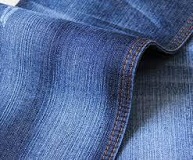 Denim industry, valued at more than $57 billion, will experience an annual growth rate upward of 6 percent till 2023, according to the recent P&S Market Research report. The reason for this stupendous growth is the innovative and advanced status of manufacturers and buyers as they look for denim that does more while leaving a lesser impact on the environment. Lot many countries are making a growth headway into denim. Here’s a look at them:
Denim industry, valued at more than $57 billion, will experience an annual growth rate upward of 6 percent till 2023, according to the recent P&S Market Research report. The reason for this stupendous growth is the innovative and advanced status of manufacturers and buyers as they look for denim that does more while leaving a lesser impact on the environment. Lot many countries are making a growth headway into denim. Here’s a look at them:
Bangladesh
The Southeast Asian nation known largely for its low-cost manufacturing, Bangladesh contributed the third most denim imports to the US last year. In 2017, Bangladesh shipped $508 million worth of denim apparel to the US, clocking growth of 10 percent from the past year.The strong growth rests on two pillars: highly competitive costs and innovation.The focus for Bangladesh has been sustainability. Though lower cost than other countries, Bangladesh doesn’t seem to withhold on machinery, employing the latest iterations of high-tech equipment to improve products and processes. More and more, circularity is coming into the conversation, too. According to manufacturers, Bangladesh will be looking to go green, using more eco-friendly materials, like organic and BCI cotton, looking into cleaner dyeing technologies, and turning to technical denim that does more while using less.
China
Last year, China shipped $922 million worth of denim apparel to the US, nearly 2 percent less than what it shipped in 2016, but the country still accounts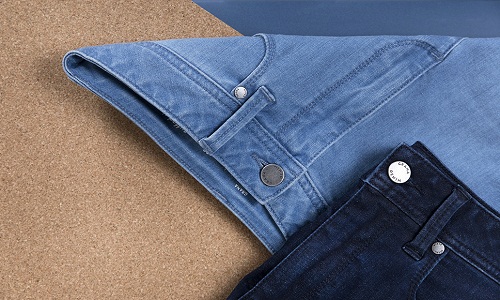 for more than 25 percent of overall US denim imports. Ruyi Zhong, VP, Foshan Season Textile and Garment Co. based in Guangdong, highlighted that eco-fabric has become a big trend. His company develops ‘Ecology Denim’ collection, which is including pre- and post-consumer recycled cotton/poly, but it is the only player in the market using the post-consumer yarn for warp. According to him, the Chinese Government will continue to execute the strict environment protection, therefore, only those good mills who have strong R&D, a high-quality control system and the ability to control costs will be able to survive. And those not able to meet the environment protection standard will be closed down.According to him, China’s denim industry will transform to a better and more high-end level.
for more than 25 percent of overall US denim imports. Ruyi Zhong, VP, Foshan Season Textile and Garment Co. based in Guangdong, highlighted that eco-fabric has become a big trend. His company develops ‘Ecology Denim’ collection, which is including pre- and post-consumer recycled cotton/poly, but it is the only player in the market using the post-consumer yarn for warp. According to him, the Chinese Government will continue to execute the strict environment protection, therefore, only those good mills who have strong R&D, a high-quality control system and the ability to control costs will be able to survive. And those not able to meet the environment protection standard will be closed down.According to him, China’s denim industry will transform to a better and more high-end level.
Mexico
Mexico is known for high-quality fabrics and the convenience of speed to market when shipping to the US, which has been key for fast fashion brands looking for quicker turn denim. Mexico contributed $793 million worth of denim apparel to the US last year. And though its share dropped more than 8 percent over 2016, Mexico still makes up nearly 22 percent of overall US denim imports.Roughly 40 percent of men’s and boy’s jeans in the US come from Mexico, where leaders like Levi Strauss & Co., VF Corp., Lee and Wrangler have supply chains set up. According to a report released by the United States Department of Agriculture last year, Mexico is the 7th largest exporter of denim worldwide, and it’s held that spot for 15 years.
AlvydaKupinas, design director, Kaltex America, informed that manufacturers in Mexico are using eco-friendly blends like Tencel Modal and Repreve recycled polyester with moisture management properties. Thrust has been on developing performance stretch denim with CoolMax, ToughMax, DualFx and bi-stretch denim with 360-degree comfort. When it comes to finishing, the focus has been on foam coating, ozone finishing, overdyeing, digital printing, and waterless and low energy laundry applications.
Italy
Italy just gained its place into the top 20 list of those supplying denim to the US, supplying $18 million worth of denim apparel in 2017, a nearly 10 percent dip from what the previous year. The country accounts for just half a percent of overall US denim imports. Alberto Candiani, a denim expert who runs leading Italian mill Candiani Denim, said that ‘Clean denim’, in terms of both look and content, has been among the latest developments coming out of Italy for denim. Performance is a given factor to all stretch denim nowadays, so the focus is more on sustainable fibers, eco dyes and finishing. Taste, creativity, innovation, a finer aesthetic and hand feel have always been part of what sets the Italian denim industry apart from others.Cost has contributed at least in part to fewer Italian denim imports coming into the US, where an overwhelming majority of mass market retailers can’t pay the prices for Made in Italy denim and ever expect to meet their already thin margins.
Pakistan
The country is the fourth largest supplier of denim to the United States, and in 2017 the country shipped roughly $214 worth of denim apparel to the US, a nearly 20 percent jump over what it shipped in 2016.Henry Wong, director – product development & marketing, North America at Pakistan’s Artistic Fabric & Garment Industries (AFGI), said that suppliers in Pakistan are continually investing in innovation and sustainability. AFGI is turning to old materials to make new ones, rather than depleting more of the world’s resources sticking solely to virgin inputs.The company recently added a post-consumer waste tearing plant to its facilities, allowing it to transform old jeans into new fabrics entirely in house, which has served to reduce what would have otherwise ended up in landfill. According to Wong, more and more, European retailers are sourcing from Pakistan to take full advantage of the speed, flexibility, and quality many producers here offer.







